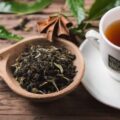The Potential Benefits of Flavonoids
A new study published in the journal Hypertension suggests that consuming foods rich in flavonoids may help lower blood pressure. Flavonoids are compounds found naturally in many fruits, vegetables, herbs, and teas. They have been linked to a variety of health benefits, including improved heart health.
Study Details
The study analyzed diet and blood pressure data from over 900 adults aged 25 to 74 in South Korea. Participants who consumed the most flavonoid-rich foods were less likely to have elevated systolic blood pressure readings. Foods that contain high levels of flavonoids include berries, apples, oranges, onions, soybeans, broccoli, cabbage, lettuce, and green tea.
Potential Mechanisms
Researchers believe flavonoids may improve blood pressure levels in a variety of ways. Some flavonoids have anti-inflammatory and antioxidant effects that help protect blood vessels and improve their function. Flavonoids may also help regulate nitric oxide, which causes blood vessels to dilate and lowers blood pressure.
Incorporating More Flavonoid-Rich Foods
Eating more fruits, vegetables, whole grains, legumes, nuts, seeds, herbs, and tea is an important part of a heart-healthy diet pattern. Focus on incorporating a variety of colorful produce into your meals and snacks throughout the day. Some easy ways to add more flavonoid-rich foods include:
- Snacking on berries, apples, or oranges
- Adding broccoli, onions, cabbage, or leafy greens to dishes
- Enjoying salads topped with nuts and berries
- Drinking green tea, either hot or iced
The Importance of Lifestyle Factors
While diet plays a key role, other lifestyle factors significantly impact blood pressure as well. Getting regular physical activity, maintaining a healthy body weight, not smoking, and limiting excess alcohol intake also help control blood pressure.
Frequently Asked Questions
What foods contain the most flavonoids?
Some of the best sources of flavonoids include berries, citrus fruits, apples, onions, parsley, legumes, green tea, red wine, and dark chocolate.
How much should I eat to lower blood pressure?
There’s no specific recommended daily intake. But aim for at least 3-4 servings per day of flavonoid-rich fruits and vegetables as part of an overall heart-healthy diet pattern.
Are flavonoid supplements as good as eating real foods?
Supplements don’t have the same benefits. Focus on getting flavonoids from whole foods which provide additional vitamins, minerals and antioxidants.
Does cooking destroy flavonoids?
Some cooking methods like steaming, microwaving, and stir frying preserve more flavonoids compared to boiling or baking.
Can flavonoids interact with medications?
There are no known negative interactions. But check with your doctor, especially if you take blood pressure or blood thinner medications.









